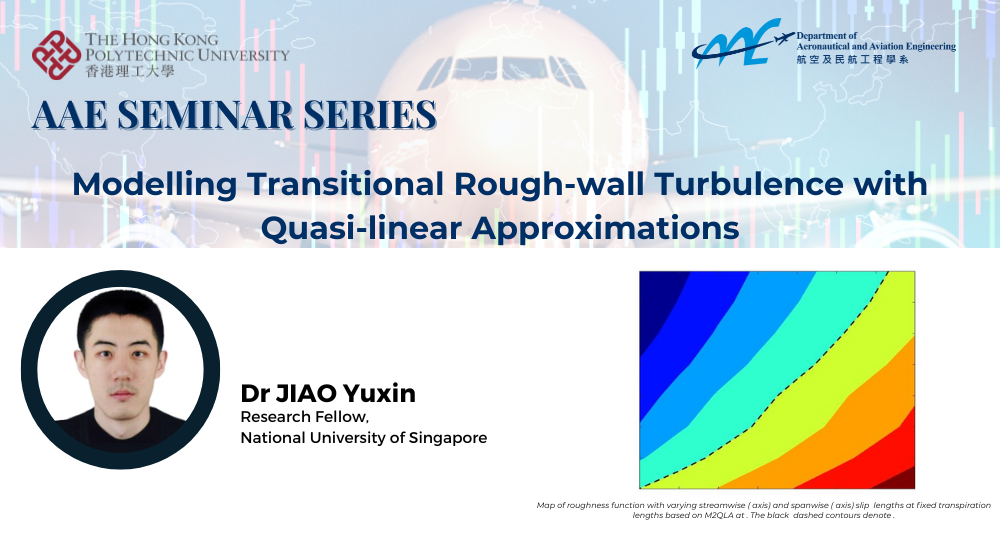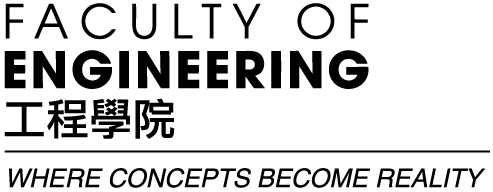Modelling Transitional Rough-wall Turbulence with Quasi-linear Approximations
Seminar

-
Date
31 Oct 2025
-
Organiser
Department of Aeronautical and Aviation Engineering
-
Time
10:00 - 11:00
-
Venue
Y301 Map
Enquiry
General Office aae.info@polyu.edu.hk
Remarks
To receive a confirmation of attendance, please present your student or staff ID card at check-in.
Summary
Abstract
The effects of surface roughness in the transitionally rough regime on the overlying near-wall turbulence are modelled using quasi-linear approximations proposed recently: minimal quasi-linear approximation (MQLA) (Hwang & Ekchardt, 2020, J. Fluid Mech., vol. 894, A23), data-driven quasi-linear approximation (DQLA) (Holford et al., 2024, J. Fluid Mech., vol. 980, A12) and a newly established variant of MQLA (M2QLA, minimal two-mode quasi-linear approximation). The transpiration-resistance model (TRM) for boundary conditions is applied to account for the surface roughness (Lacis et al., 2020, J. Fluid Mech., vol. 884, A21). It is shown that many essential near-wall turbulence statistics are fairly well captured by the quasi-linear approximations in a wide range of slip and transpiration lengths for the TRM boundary conditions. In particular, the virtual origins and the resulting roughness functions are well predicted, showing good agreement with those from previous direct numerical simulations (DNS) in mild roughness cases. The DQLA and M2QLA, which incorporate streamwise-dependent Fourier modes in the approximations, are also shown to perform slightly better than MQLA, especially with DQLA reproducing the two-dimensional energy spectra qualitatively consistent with the DNS. Finally, with a computational cost much lower than DNS, it is shown that the proposed quasi-linear approximation frameworks offer an efficient tool to rapidly explore the roughness effects within a large parameter space.
Speaker
Dr Yuxin Jiao completed his PhD at Imperial College London, under the supervision of Prof. Yongyun Hwang and Dr. Sergei Chernyshenko, from 2018 to 2022. Following this, he pursued a postdoctoral fellowship at Peking University with Prof. Jianjun Tao from 2022 to 2024. He is currently a research fellow at the National University of Singapore, collaborating with Prof. Mengqi Zhang.
His research focuses on theoretical and numerical investigations of turbulent and transitional flows, with a particular emphasis on exploring physical mechanisms and developing modeling frameworks. Dr. Jiao's research outcomes have been published in leading journals, including the Journal of Fluid Mechanics, Physics of Fluids, and Physical Review Fluids.




